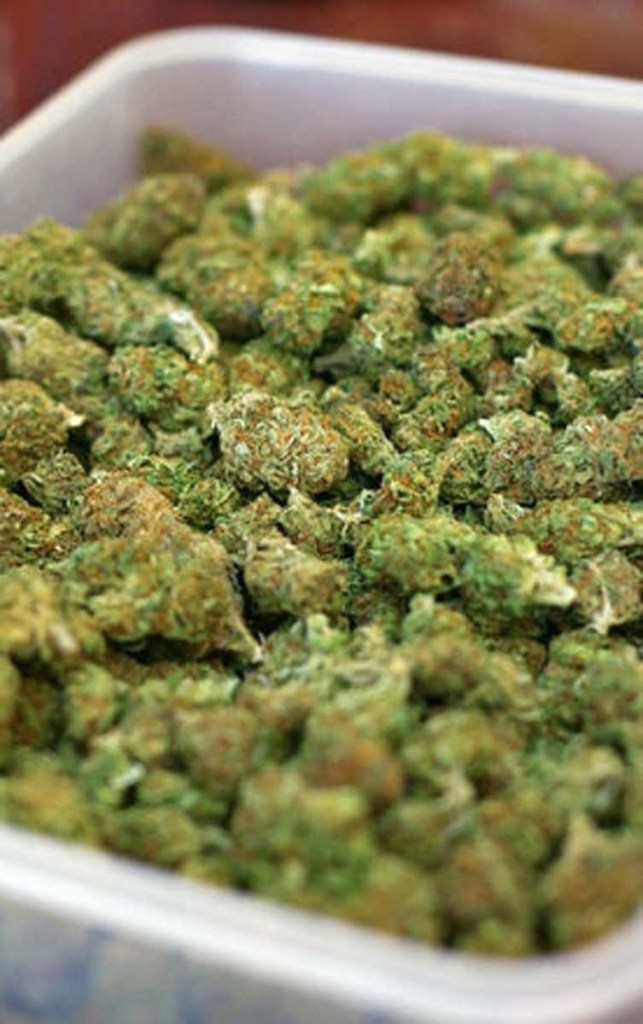Outside money rolling in for Massachusetts marijuana ballot question
Published 6:30 am Tuesday, September 13, 2016

- Marijuana
BOSTON — Millions of dollars are flowing into a ballot campaign to legalize recreational marijuana in Massachusetts, much of it from out-of-state groups that have helped make pot legal elsewhere.
The Campaign to Regulate Marijuana like Alcohol, the primary committee pushing for legalization in Massachusetts, has raised more than $2.7 million in contributions as of Sept. 4, according to disclosures with the state Office of Campaign and Political Finance.
New Approach PAC, a Washington, D.C.-based progressive group with ties to billionaire philanthropist and legalization advocate Peter Lewis, contributed nearly $2.2 million. The group was a major contributor to Oregon’s successful 2014 legalization effort.
The National Organization for the Reform of Marijuana Laws has contributed $100,000. The Marijuana Policy Project, also based in Washington, has contributed more than $175,000 to help pay for staff and other campaign-related expenses.
If approved by voters, the proposal will allow Massachusetts residents 21 and older to possess up to an ounce of marijuana. It also would create a 3.75 percent excise tax on marijuana sales and create a state-regulated system of licensed retail outlets, cultivation facilities and testing.
It is now illegal to grow, sell or possess marijuana, though a 2008 ballot question made possession of an ounce or less a civil offense punishable by a $100 fine. Voters have also opened the door to use of medical marijuana.
Supporters of this year’s measure to legalize marijuana more broadly downplay the influx of money from out of state.
“This isn’t an industry-supported project, as some are suggesting,” said Jim Borghesani, a spokesman for the Campaign to Regulate Marijuana like Alcohol. “We’ve also gotten a lot of small donations from people who feel this is the right path.”
The group has spent much of its money on political consultants and media production companies located in other states.
“It’s no surprise the that the marijuana industry is spending millions of dollars to expand sales,” said Jeff Zinsmeister, a spokesman for the nonprofit group Smart Approaches to Marijuana, one of several opposing the proposal. “The money is coming from out-of-state special interest groups that are looking to make money off of the sale of marijuana.”
Opponents of marijuana legalization have only collected $388,502 to date, according to filings with the state. That includes $100,000 from Markley Boston LLC, a telecom company, and $25,000 from the Beer Distributors of Massachusetts PAC.
Essex County District Attorney Jonathan Blodgett contributed $1,000, as have several other officials opposed to legalization. Former Boston Bruins hockey star Bobby Orr chipped in $1,000 for the opposition, as well.
In Massachusetts, the sky is the limit for contributions to committees that raise money for ballot questions.
Unlike contributions to candidates, there are no restrictions on committee committees, and corporations often get involved. The result can be a deluge of advertising underwritten by special interests, labor unions and others.
A question to expand taxpayer-funded charter schools has also drawn interest from out of state.
The three ballot committees supporting the measure have drummed more than $12 million to date, according to the Office of Campaign and Political Finance.
Those contributions include more than $6.3 million from the New York-based Families for Excellent Schools Advocacy Inc. and $240,000 from former New York Mayor Michael Bloomberg, who has championed the privately run, publicly funded schools.
On Monday, opponents of the charter school measure blasted the “Yes on Two” campaign for accepting a $100,000 donation from Paul Sagan, chairman of the state Board of Elementary and Secondary Education. The board oversees the state’s charter schools.
“This reckless charter school ballot question sets no limits on the amount of money that Sagan and his board could unilaterally take from neighborhood public schools anywhere in the state,” said Juan Cofield, chairman of the Campaign to Save Our Public Schools, in a statement.
Save Our Public Schools, which has raised $6.7 million in opposition to the question, called on Sagan to step down from his post.
One ballot initiative that appears to be lopsided in fundraising is the proposal to ban cage confinement for farm animals.
Supporters of the referendum, which is backed by the Humane Society of the United States, have raised $1.6 million to date. A sizable chunk of the money has come from the Humane Society and other groups against animal cruelty, according to filings.
In contrast, opponents haven’t registered a ballot committee or raised a dime to fight the referendum. That’s a sharp difference from California, where the food industry spent tens of millions of dollars fighting a similar initiative in 2008.
“We certainly have concerns about the impact of this proposal on Massachusetts retailers, but it’s not something that we’re going to spend a ton of money on,” said Chris Flynn, president of the Massachusetts Food Association, which opposes the question.
Supporters don’t expect much opposition from the agricultural industry between now and Nov. 8 elections.
“The most recent polls show that 3 out of 4 Massachusetts voters support ‘Yes on 3,’ so don’t think big-agriculture wants to go on a kamikaze mission,” Stephanie Harris, Massachusetts state director for the Humane Society. “Given that, fighting it seems unwise.”
Overall, spending on the four ballot initiatives so far pales in comparison to that of previous elections.
Two years ago, special interest groups and supporters spent more than $30 million on several questions, including proposals to expand the state’s five-cent bottle bill, repeal the casino gambling law and eliminate automatic gas tax increases.
Christian Wade covers the Massachusetts Statehouse for the North of Boston Media Group’s newspapers and websites. Reach him at cwade@cnhi.com.





